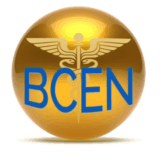Blog
To Cite or Not to Cite: Determining Whether Information is “Common Knowledge”
This post discusses “common knowledge,” one of three issues that must be considered in determining whether, in a paper you’re writing, an item of information must be cited. For information on the other two issues—types of sources and types of information that should...
APA Headings
When writing a paper in APA Style, consider using headings to improve your paper’s readability. For you as an author, headings will help you to organize your ideas; for your readers, headings facilitate reading by indicating the logical presentation of your paper’s...
The Semicolon
In APA Style, semicolons are used in several ways: to join independent clauses that are closely related, to separate series of items if the items themselves contain internal commas, and to separate multiple citations that are enclosed by a single pair of parentheses....
Verb Mood – The Subjunctive Mood
Verb Mood in English Grammar In English grammar, a sentence’s “mood” indicates the author’s (or speaker’s) attitude about a sentence’s factuality, veracity, and certainty. English has five moods. The most commonly used mood is the declarative mood (also known as...
Lack of Flow: Diagnosis and Treatment
Dear Nurse–Author, If a reviewer of a paper you have written tells you that your paper lacks “flow,” you may be uncertain about what this diagnosis signifies and what treatment entails. Do not be discouraged! You are not alone in encountering the dreaded Lack of Flow...
Subject-Verb Agreement
Adapted from The Grammar Book. Retrieved from http://www.grammarbook.com/grammar/subjectVerbAgree.asp and from Towson University Online Writing Support. Retrieved from http://www.towson.edu/ows/moduleSVAGR.htm Subject–Verb Agreement Rules for Scientific Writing In...
Why Use APA Style?
I’m sometimes asked why nursing schools require students to write papers in APA style—the writing style specified by the American Psychological Association. Although I do not know the historical thinking of the nursing school administrators who chose APA style, U.S....
Word Choice in Scientific Writing
“[A]ccurate and powerful diction [word choice] is an absolute necessity if one is to become a strong writer.” —George Gopen, Writing from the Reader’s Perspective, 2004, p. 9 Word Choice in Scientific Writing Word selection in scientific writing can be...
Accuracy in Scientific Writing
In scientific writing, semantic accuracy is especially important. Semantic accuracy refers to agreement between an author’s intended meaning and the words that the author uses to express that meaning. Formal composition requires that authors write—and think—with a...
Writing and Editing Your Paper in Six Steps
For most documents, I recommend the following six-step process for writing and editing a paper. The first two steps entail creation of outlines—basic and detailed. Creating these outlines is not a superfluous activity—consider these two outlines to be mandatory. To...
